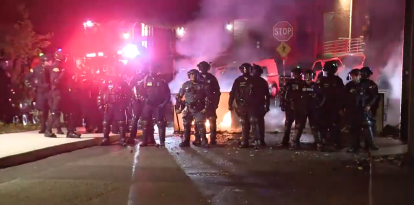Target and Walmart warn that rising theft and retail crime "are increasingly urgent issues"
An executive of the National Retail Federation warns that theft losses could exceed $100 billion this year.

Walmart / Wikimedia Commons.
Many companies, from large retailers such as Target and Walmart to smaller retail stores, have reported that they are suffering an escalation of thefts despite their efforts to increase security and prevent losses.
The National Retail Federation (NRF), which describes itself as the world's largest trade organization, estimates that inventory losses from theft cost retailers nearly $100 billion last year, and according to its vice president of asset protection and retail operations, David Johnston, that figure could get worse.
"Based on what we're hearing already from many of these CEOs and based on what we're experiencing daily in retailers across the nation… I do foresee us to have a much higher loss in 2023," he said.
Target reported last week that theft losses could exceed $1.2 billion this year, and while they are trying to expand security and further protect some items, they don't believe the problem can be solved "by one retailer."
"Theft and organized retail crime are increasingly urgent issues, impacting the team, and our guests and other retailers," said Target CEO Brian Cornell.
Watch the latest video at foxbusiness.com
Walmart, Foot Locker and Kohl's are among other major retailers that have spoken out about how hard hit they have been by the increase in theft. This year dozens of stores have even had to close their doors due to the rise in criminal incidents.
"(Retail theft) has been really challenging. It will take communities stepping up and enforcing the law to be able to bring this issue back under control," opined Walmart CEO John Furner.
The white hand against crime
Jan Kniffen, the CEO of retail research firm J Rogers Kniffen, believes that one of the reasons why there is more theft is because the legal penalties for this crime have been "drastically" reduced.
It is worth noting that cities such as Chicago, New York, Portland and San Francisco have implemented measures that do not prosecute offenders who steal less than $950, allowing those who commit minor offenses to get off scot-free with only a reprimand.
Mark Cohen, director of retail studies at Columbia Business School, agrees with Kniffen, noting that "bad behavior" is now being normalized and even legitimized.
RECOMMENDATION





















